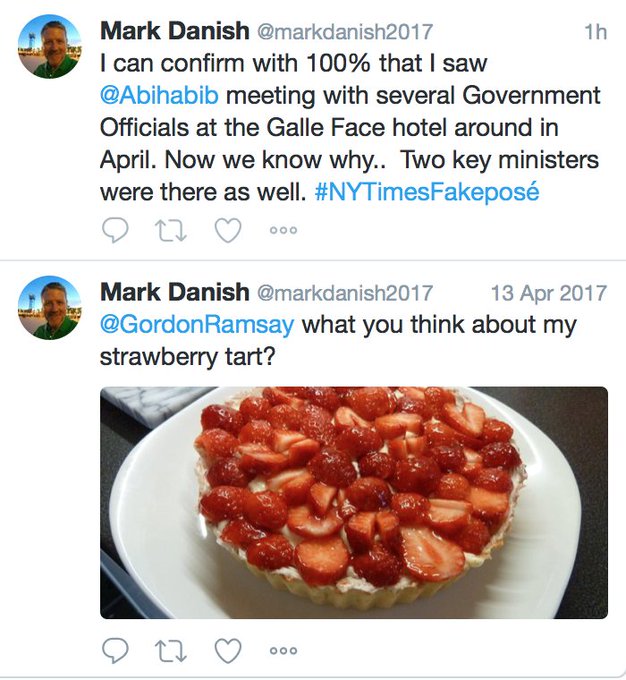A Brief Colonial History Of Ceylon(SriLanka)
Sri Lanka: One Island Two Nations
A Brief Colonial History Of Ceylon(SriLanka)
Sri Lanka: One Island Two Nations
(Full Story)
Search This Blog
Back to 500BC.
==========================
Thiranjala Weerasinghe sj.- One Island Two Nations
?????????????????????????????????????????????????Monday, July 9, 2018
Chinese Whispers: On Corruption and the Hambantota Port
 Featured image by Raisa Wickrematunge
Featured image by Raisa Wickrematunge

RAISA WICKREMATUNGE-07/08/2018
On July 2, 2018, Hiru TV aired footage from two press conferences hosted
by the Sri Lanka Podujana Peramuna (SLPP) during its 6:55 pm broadcast.
During the press conference, the members of the Joint Opposition reacted to a story run by the New York Times,
which focused on the deal around the Hambantota Port to illustrate the
argument that China’s Belt and Road initiative was exploitative and left
countries like Sri Lanka struggling with debt. (The Belt and Road initiative involves
China underwriting infrastructure investment such as roads, ports and
airports for countries lining the old Silk Road route.) It is an
argument that has been gaining some traction, particularly after
reports noting that Zambia, the Republic of Congo have had to turn to the IMF for assistance after taking on Chinese loans. T
The former Governor of the Central Bank, Nivard Cabraal was the first to respond to the story, releasing the full audio clip of the interview in which many of the question asked by the New York Times remained unanswered. The former President also released an official response.
On Twitter, a number of newly created accounts began trolling those who
posted about the New York Times story. This account, for instance, had
one post on strawberry tarts, and then tweeted almost exclusively about
the New York Times.
From strawberry tarts to the #Hambantota port - this account which has 0 followers, and has been inactive since 2017 is very interested in Sri Lankan politics and the recent @nytimes story on China in particular @Abihabib #lka #SriLanka
This account’s tweets were ‘liked’ by many members from the Rajapaksa
camp themselves, including by Namal Rajapaksa. While this is
unsurprising, given the slant of the tweets, it does not bode well that
running a reverse image search on the profile photo revealed that it had
previously turned up on a (somewhat garish) website meant to showcase
photos of people which had been hijacked by scammers.


